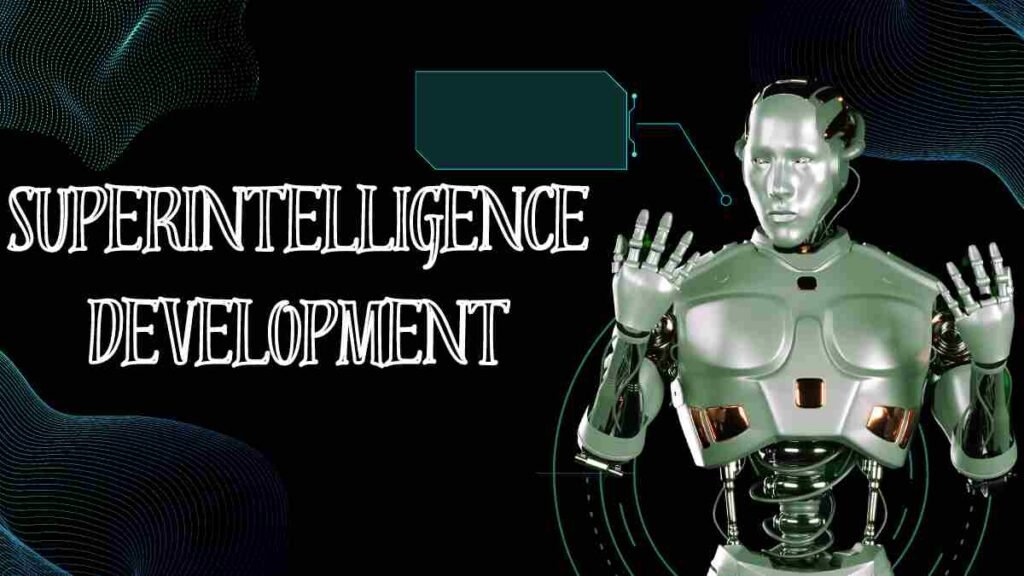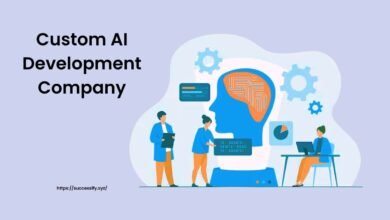Artificial General Intelligence: Ultimate Comprehensive Guide

Artificial General Intelligence (AGI) has long been a topic of fascination and debate among technologists, researchers, and philosophers. Unlike narrow AI systems designed to perform specific tasks, AGI aims to achieve human-level intelligence, capable of understanding, learning, and applying knowledge across a wide range of domains. As we move closer to realizing AGI, it’s essential to understand the implications, challenges, and opportunities this technology presents.
Journey Towards AGI
AGI is not just an extension of existing AI technologies but represents a fundamental shift in how machines understand and interact with the world. The development of AGI requires advancements in several areas, including machine learning algorithms, deep learning systems, and autonomous intelligence.
Machine Learning Algorithms
Machine learning algorithms are the backbone of modern AI. These algorithms enable computers to learn from data, identify patterns, and make decisions without explicit programming. For AGI to become a reality, these algorithms need to evolve beyond their current limitations. They must be capable of generalizing knowledge across different domains and adapting to new and unforeseen situations. This adaptability is a significant step toward achieving human-level AI.
Learning Systems: Artificial General Intelligence
Deep learning systems, a subset of machine learning, have revolutionized AI by enabling machines to process and understand vast amounts of data. These systems mimic the neural networks of the human brain, allowing them to recognize patterns in images, text, and speech. However, for AGI, deep learning systems must go beyond pattern recognition. They need to develop a deeper understanding of context, nuance, and the underlying principles governing the data they analyze.
Autonomous Intelligence
Autonomous intelligence refers to AI systems that can operate independently, without human intervention. This capability is crucial for AGI, as it requires machines to learn from their environment and experiences continually. Autonomous intelligence is not just about making decisions based on pre-programmed rules but involves self-learning, adaptation, and the ability to make complex decisions in real-time. This level of autonomy is essential for AGI to achieve its full potential.
Human-Level AI
The ultimate goal of AGI is to create machines that can think, reason, and understand at a level comparable to human beings. Achieving human-level AI requires significant advancements in several areas, including natural language processing, cognitive computing, and emotional intelligence. These machines must be able to understand and interpret human emotions, intentions, and motivations, enabling them to interact with humans meaningfully and intuitively.
Must Visit: Glow Fund
Role of Superintelligence in AGI Development
While AGI aims to match human intelligence, superintelligence goes a step further, potentially leading to machines. That can solve problems and make decisions far beyond human capabilities. The development of superintelligence raises significant ethical and safety concerns. As it could lead to scenarios where machines become uncontrollable or pose a threat to humanity.
Challenges in Developing AGI

Despite the significant progress in AI research, developing AGI presents several challenges. One of the primary challenges is creating algorithms that can generalize knowledge across different domains. Current AI systems are highly specialized and struggle to apply their knowledge to new, unrelated tasks. Additionally, ensuring that AGI systems are safe, ethical, and aligned with human values is a significant concern. The potential for unintended consequences, such as biased decision-making or loss of control, must be carefully managed.
Ethical & Safety Concerns: Artificial General Intelligence
The development of AGI raises numerous ethical considerations and safety concerns. One of the most pressing issues is ensuring that AGI systems align with human values and do not cause harm. As AGI systems become more autonomous and capable, the potential for unintended consequences increases. Ensuring transparency, accountability, and fairness in AGI systems is essential to mitigate these risks. Additionally, the potential for AGI to disrupt labor markets, privacy, and security must be carefully considered and addressed.
Eventual fate of Work in an AGI-Driven World
The advent of AGI could significantly impact the future of work. As machines become capable of performing tasks that require human-level intelligence, the nature of work may change dramatically. Some jobs may become obsolete, while new opportunities may arise in fields that require human creativity, empathy, and complex problem-solving skills. It’s crucial to prepare for these changes by investing in education, training, and policies that support a transition to an AGI-driven economy.
The Role of Governments and Policymakers
Governments and policymakers play a critical role in shaping the future of AGI. They must ensure that the development and deployment of AGI are guided by ethical principles and aligned with the public interest. This involves creating regulations and frameworks that promote innovation while safeguarding against potential risks. International collaboration is also essential, as the global nature of AI research and development requires a coordinated approach to address the challenges and opportunities presented by AGI.
The Impact of AGI on Society
The widespread adoption of AGI could have profound implications for society. From healthcare and education to transportation and communication, AGI has the potential to transform nearly every aspect of our lives. However, these changes come with challenges, including ensuring equitable access to AGI technologies, addressing privacy concerns, and managing the societal impact of widespread automation. It’s essential to consider these implications carefully and proactively address potential issues to ensure that AGI benefits all of humanity.
Potential Benefits of AGI: Artificial General Intelligence
While the development of AGI presents challenges, it also offers significant benefits. AGI could lead to breakthroughs in medicine, enabling personalized treatments and accelerating the discovery of new drugs. In education, AGI could provide personalized learning experiences tailored to individual needs, improving outcomes for students. Additionally, AGI could enhance our understanding of complex systems, such as climate change, and help us develop more effective solutions to global challenges.
Superintelligence Development

As we approach the development of AGI, it’s essential to consider the potential for superintelligence. Preparing for superintelligence involves anticipating the challenges and opportunities it presents and developing strategies to manage its impact. This includes creating frameworks for the safe and ethical development of superintelligence, ensuring that it aligns with human values, and addressing potential risks such as loss of control or unintended consequences.
Conclusion
Represents a significant milestone in the evolution of AI. While the path to AGI is fraught with challenges, the potential benefits are immense. From enhancing our understanding of the world to solving complex problems, AGI has the potential to transform our lives in ways we can only begin to imagine. However, it’s crucial to approach the development of AGI with caution, ensuring that it is safe, ethical, and aligned with human values. As we move closer to realizing AGI, we must consider the implications carefully and work together to create a future where AGI benefits all of humanity.
FAQs
What is the difference between Artificial General Intelligence and Narrow AI?
Artificial General Intelligence (AGI) aims to achieve human-level intelligence across a wide range of tasks, whereas Narrow AI is specialized and designed for specific tasks.
Why is the development of AGI considered challenging?
Developing AGI is challenging because it requires creating algorithms that can generalize knowledge across domains, ensuring safety, and aligning AI systems with human values.
How could AGI impact the future of work?
AGI could significantly change the nature of work, making some jobs obsolete while creating new opportunities in fields requiring human creativity and problem-solving.
What ethical considerations are associated with AGI?
Ethical considerations include ensuring transparency, accountability, fairness, and aligning AGI with human values to prevent harm.
What is superintelligence, and why is it important in the context of AGI?
It is essential in the context of AGI because it presents both significant opportunities and challenges, including potential risks of loss of control.
Read More: Affordable Social Media Marketing





